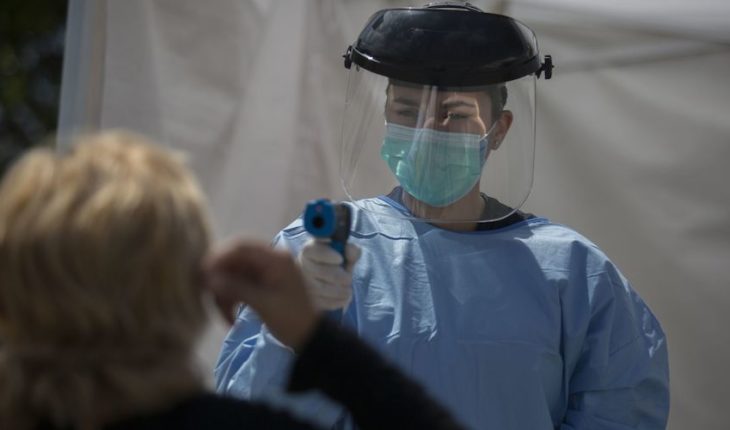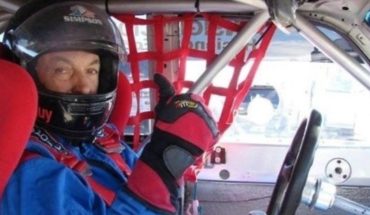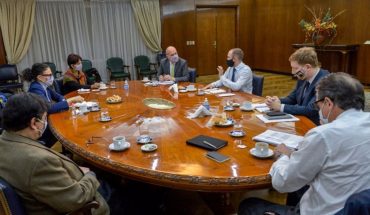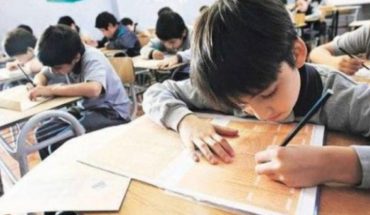During this coVID-19 contingency, the National Council for the Prevention of Discrimination (Conapred) has received complaints and documented situations related to acts of rejection, violence and discrimination of four types and affecting various groups.
“That shouldn’t happen. Mexico has during this contingency a historic opportunity not only to curb the risk of contagion, this is also an opportunity to be empathetic, supportive, reciprocal and careful,” said Monica Maccise Duayhe, Conapred’s holder, during the COVID-19 conference on Friday.
The first type of rejection and discrimination actions, he said, are those related to people who have been diagnosed with COVID-19 coronavirus and who have faced threats that they will be fired.
They have also faced denial of access to health, “that you will not be cared for in this hospital.” And there are people who in their homes, in their condominium spaces and residences, the administration itself has restricted them from handing them food. Patients have even documented cases of restrictions on public care services such as shelters.
There is also, said Maccise Duayhe, concrete actions of violence and rejection of medical and nursing personnel. “This is very delicate because they are making a huge effort to be able to work on any condition in this contingency and they deserve all our recognition and all our reciprocity.”
Concrete complaints have been similarly filed by sexual diversity groups that have affected their rights because some religious leaders have interpreted COVID’s origin as homosexuality, and have also referred to it involving feminism or women’s decision on their bodies.
Read more No visits, inputs or healthy distance: the prison landscape versus COVID-19
“A call to his parish motivates discrimination and rejection towards these populations, so it is very important to give truthful and timely information not based on stereotypes or prejudices,” says Conapred.
There have also been signs of racism and xenophobia towards foreigners and people who have physical traits from East Asia, or, in a very stigmatizing way, from China.
“We have information that they have been absolutely rejected in their rights and are afraid even to take to the streets because others think, by stereotype, that they are the subject of contagion, when many of them are Mexican, they live in Mexico and many have probably never been to China.”
For this reason, Maccise Duayhe said, Conapred calls on public administration, organizations, society, the private sector to provide truthful, timely and clear information based on science.
But it is very important, he noted, that this communication includes people with various disabilities, hearing, visual, intellectual. “The information we get every day about contingency is vital and it is essential that we can all understand it.”
This information must also be culturally relevant, accessible to indigenous peoples and communities in their own languages. “Translations have been made in indigenous languages so that it can be distributed, with the periphono, for example, and an effort has also been made with the issue of disability, we lack the government and the private media more to be able to make information accessible to all people, but there are organizations that can help in that.”
COVID-19: Medical staff isolates themselves from their own family to care for patients and prevent contagion
In addition, the call to action in this contingency also has to do with recognizing differences, conapred’s headline stressed. “How it takes us such a contingency in an absolutely unequal country. In Mexico only six out of ten people have benefits and also have a formal contract, i.e. four out of ten people do not have a fixed salary and do not have medical benefits, this makes it more difficult for them to follow the instruction to stay at home.”
That is why, Maccise Duayhe said, it is important that mitigation measures for these populations at greater social disadvantage are focused on their needs.
“Special mention have the domestic workers. From Conapred we have called for the full salary of the domestic workers at this stage to be covered, that if they are no longer working in the houses because they can no longer be transported or for health reasons, they stay at home but that they pay their full salary.”
There are other populations that require supports such as waiters, sex workers, those who sell near schools, these sectors require support.
In terms of migrant population and prison population, attention must also be paid. “The Ministry of Health has guidelines to be able to mitigate the risk of contagion and we call for these measures to be applied to the best standards, informing people about what is going on, because if outside some people are desperate, let’s imagine who is inside.”
To address cases of discrimination Conapred offers a grievance system, just call 55621490 or 800543033 or write to [email protected] if you believe that one of your rights has been violated by health condition, by work, by sexual orientation, by pregnancy.
“In many cases the complaint is resolved quickly, in others we go to conciliation measures and in others we go to the investigation to determine sanctions that can be public apologies, redress measures, even financial compensation.”
There is also an inter-agency effort to enable 911, which is the emergency line, to connect people living in depression, distress, uncertainty or violence or those who believe they may commit violence with the right services. “Call and be channeled for psychological containment, emotional containment and legal help,” conapred said.
What we do in Animal Político requires professional journalists, teamwork, dialogue with readers and something very important: independence. You can help us keep going. Be part of the team.
Subscribe to Animal Político, receive benefits and support free journalism #YoSoyAnimal.





